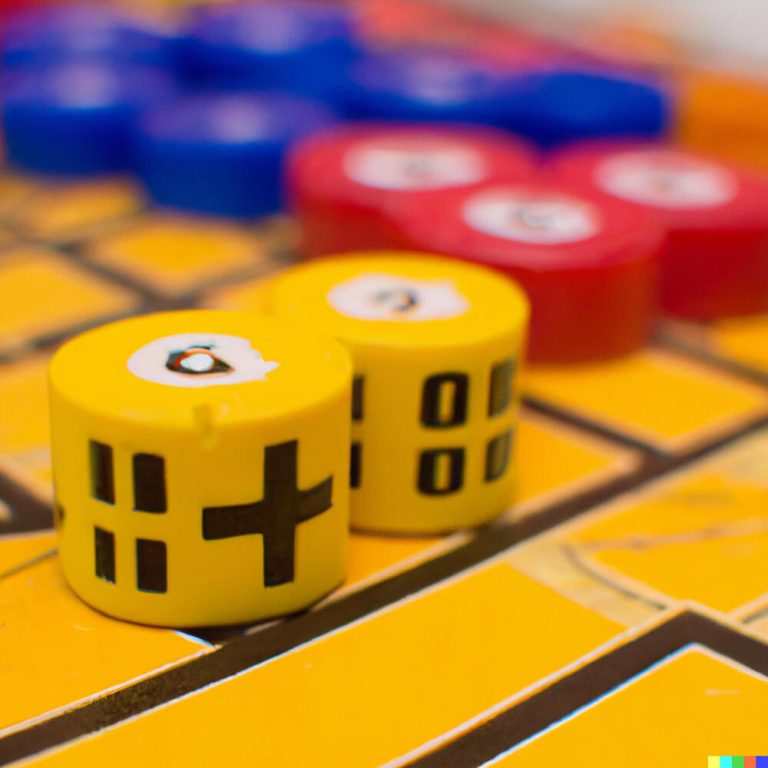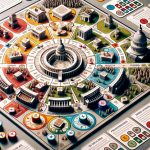Are you a fan of political strategy board games? If so, you’re in for a treat. In this article, we will delve into the fascinating world of political strategy board games, exploring their history, popular titles, gameplay mechanics, psychological aspects, real-life impact, and the future trends in this genre. Whether you’re a seasoned player or just starting out, there’s something for everyone to learn and enjoy.
From ancient times to the modern era, political strategy board games have been a source of entertainment and intellectual challenge for players around the world. With their roots deeply embedded in history and society, these games offer a unique perspective on how political strategies and decision-making have evolved over time.
Throughout this article, we will take a closer look at some of the top political strategy board games of all time, analyzing their key components and understanding what makes them so engaging for players. Moreover, we’ll also examine the psychology behind these games: the strategic thinking and decision-making involved that keep players coming back for more. So sit back, relax, and get ready to explore the exciting realm of political strategy board games with us.
The History of Political Strategy Board Games
Political strategy board games have a rich and fascinating history that dates back to ancient times. Throughout the centuries, these games have provided entertainment while also serving as important tools for teaching strategic thinking, decision-making, and understanding of political dynamics. Here’s a closer look at the evolution of political strategy board games from their early beginnings to the modern era:
- Ancient Origins: Many historians believe that the earliest form of political strategy board games originated in ancient civilizations such as Egypt, Mesopotamia, and China. These games often revolved around military tactics and territorial conquest, reflecting the political climate of the time.
- Medieval and Renaissance: During the Middle Ages and Renaissance period, political strategy board games continued to evolve, with an increasing focus on diplomacy, trade, and governance. Games like “Chess” and “The Game of War” became popular among nobility and royalty as they offered a way to hone strategic thinking skills.
- Modern Era: The 20th century saw a surge in the popularity of political strategy board games with the introduction of titles like “Diplomacy,” “Risk,” and “Axis & Allies.” These games introduced more complex gameplay mechanics, intricate diplomatic strategies, and diverse scenarios that mirrored real-world geopolitical situations.
As we can see from this historical overview, political strategy board games have continuously adapted to reflect changes in politics and society. From their ancient origins to their modern iterations, these games have provided an invaluable platform for understanding political strategy in an engaging and immersive way.
The evolution of political strategy board games has not only shaped the gaming industry but has also contributed to our understanding of history, politics, and human behavior. In today’s digital age, these classic tabletop experiences continue to captivate players with their blend of tactical decision-making and thematic immersion.
Whether it’s navigating diplomatic negotiations or orchestrating military campaigns, these timeless games offer a unique perspective on the complexities of political strategy. Political strategy board games are more than just entertainment; they are a window into the intricacies of human interaction and strategic thinking.
Top Political Strategy Board Games of All Time
Political strategy board games have been a popular pastime for centuries, offering players the opportunity to strategize, negotiate, and engage in complex decision-making. From ancient times to the modern era, these games have captured the imagination of players around the world. In this section, we will explore some of the top political strategy board games of all time and take a detailed look at what makes them so engaging.
One such game that has withstood the test of time is Diplomacy. This classic game, first published in 1959, is set in Europe just before World War I and requires players to use negotiation and alliances to conquer territory and achieve victory. Its emphasis on diplomacy and player interactions sets it apart from many other board games in this genre.
Another standout game is Twilight Struggle, which simulates the Cold War conflict between the United States and the Soviet Union. With its rich historical detail and deep strategic gameplay, Twilight Struggle has garnered widespread acclaim within the gaming community.
A more recent addition to the genre is Pandemic: Legacy, which puts players in charge of controlling a global outbreak of diseases. While not a traditional political strategy game, it incorporates elements of negotiation and decision-making on a global scale, making it a unique and captivating addition to the genre. These are just a few examples of the diverse and compelling political strategy board games that continue to capture the imagination of players worldwide.
| Game Title | Release Year |
|---|---|
| Diplomacy | 1959 |
| Twilight Struggle | 2005 |
| Pandemic: Legacy | 2015 |
Key Components of Political Strategy Board Games
Political strategy board games are a unique and engaging way to delve into the world of politics and strategy. These games offer players the opportunity to navigate complex decision-making, negotiations, and strategic planning in a simulated political environment. Understanding the key components and mechanics of political strategy board games is essential for mastering these games and enjoying them to their fullest potential.
Gameplay Elements
Political strategy board games typically involve multiple players taking on different roles, such as politicians, government officials, or leaders of various factions. The gameplay often revolves around making decisions that affect the game’s fictional political world. Players may have to manage resources, form alliances, negotiate deals, and compete for power in order to achieve their objectives.
Complex Decision-Making
One of the defining features of political strategy board games is the complex decision-making involved. Players must consider various factors such as long-term goals, short-term gains, risk management, and the actions of other players. The choices made in these games often have far-reaching consequences and require careful consideration.
Political Dynamics
The political dynamics within these games create a rich and immersive experience for players. Understanding how power structures work, building coalitions, navigating conflicts, and anticipating opponents’ moves are all crucial elements of gameplay. These dynamics mirror real-world political strategies and add depth to the gaming experience.
By understanding these key components of political strategy board games, players can enhance their gameplay experience and develop a deeper appreciation for the intricacies of managing politics in a game setting. Whether it’s mastering complex decision-making or navigating intricate political dynamics, these games offer a stimulating challenge for those interested in strategic thinking and politics.
The Psychology of Political Strategy Board Games
Political strategy board games are not just about rolling dice or moving pieces on a board. They require strategic thinking, decision-making, and a deep understanding of the game mechanics. The psychology behind these games is fascinating, as players must make calculated moves while anticipating their opponents’ next steps. Here are some key elements to consider when exploring the psychology of political strategy board games:
1. Decision-Making: In political strategy board games, players are constantly faced with important decisions that can impact the outcome of the game. Whether it’s forming alliances, making trade deals, or initiating conflicts, every move requires thoughtful consideration. Players must weigh the risks and benefits of each decision and anticipate how their choices will affect their position in the game.
2. Strategic Thinking: Successful players of political strategy board games possess strong strategic thinking skills. They must analyze the current state of the game, predict future developments, and formulate long-term plans to achieve their objectives. Strategic thinking involves being adaptable and having multiple contingency plans in case initial strategies fail.
3. Negotiation Skills: Many political strategy board games involve negotiation with other players. Whether it’s forging alliances or brokering deals, effective negotiation can make a significant difference in the outcome of the game. Players must be persuasive, observant, and adept at reading their opponents to secure favorable agreements.
Understanding the psychology behind political strategy board games can provide valuable insights into human decision-making and interaction. These games offer a unique opportunity to delve into complex strategic thinking processes that are applicable not only in gaming but also in real-life scenarios such as business negotiations and diplomatic relations.
Political Strategy Board Games and Their Impact on Real-Life Political Strategy
Understanding Complex Political Systems
Political strategy board games provide players with the opportunity to engage in complex political systems and simulate real-world political scenarios. Through these games, players can gain a better understanding of the intricate dynamics involved in governing a nation, forming alliances, making policy decisions, and dealing with various stakeholders. By experiencing the challenges and trade-offs inherent in political decision-making, players can develop a deeper appreciation for the complexities of real-life politics.
Enhancing Critical Thinking and Strategic Planning
Engaging in political strategy board games requires players to think critically and plan strategically in order to achieve their objectives. These games often involve elements such as negotiation, resource management, and long-term planning, which are essential skills for effective political strategists. As players navigate through the game’s challenges and obstacles, they are able to hone their abilities to analyze situations, anticipate outcomes, and make calculated decisions – all of which are crucial for success in real-life political strategy.
Fostering Empathy and Perspective-Taking
One of the unique benefits of political strategy board games is their ability to foster empathy and perspective-taking among players. By assuming the roles of different political leaders or stakeholders within a game, players are encouraged to consider multiple viewpoints and understand the motivations behind various actions and policies.
This can lead to a greater appreciation for the diverse perspectives present in real-world politics, ultimately promoting tolerance and understanding in how individuals approach complex societal issues. Overall, these games offer valuable insights into human behavior within political contexts while providing an immersive experience that transcends mere observation or passive learning.
Tips for Mastering Political Strategy Board Games
Mastering political strategy board games requires a combination of analytical thinking, strategic planning, and adaptability. One of the key strategies for excelling in these games is to closely observe and analyze your opponents’ moves, as well as develop a keen understanding of the game mechanics. By studying the different gameplay strategies used by other players, you can learn to anticipate their next moves and develop effective counter-strategies.
Another important tactic for becoming a pro player in political strategy board games is to prioritize long-term goals over short-term gains. This involves carefully planning your moves to align with your overall strategic objectives, rather than simply reacting to immediate circumstances. Being able to forecast the potential consequences of your actions several turns ahead can give you a significant advantage in these games.
Furthermore, successful players in political strategy board games are often adept at leveraging negotiation and diplomacy to achieve their objectives. Whether it’s forming alliances, making trade deals, or persuading other players to support their initiatives, effective communication skills are crucial in these games. Learning how to negotiate effectively with other players can greatly enhance your chances of success and influence in the game.
| Aspect | Example |
|---|---|
| Key Strategies | Analytical thinking, strategic planning, adaptability |
| Tactics | Prioritizing long-term goals over short-term gains; leveraging negotiation and diplomacy |
| Skill Development | Forecasting consequences of actions several turns ahead; effective communication skills |
The Future of Political Strategy Board Games
In conclusion, political strategy board games have a rich and diverse history that has evolved over time, from ancient civilizations to the modern era. These games offer players the opportunity to engage in strategic thinking and decision-making, while also providing a fun and entertaining experience. The top political strategy board games of all time have captured the imagination of players around the world, with their unique mechanics and gameplay.
As we look towards the future of political strategy board games, it is clear that there are exciting trends and developments on the horizon. With advancements in technology, we can expect to see more immersive and interactive gaming experiences that will elevate the genre to new heights. From virtual reality adaptations to online multiplayer options, the future of political strategy board games is bright and promising.
Furthermore, it is evident that these games not only provide entertainment value but also have real-world implications. By understanding the psychology of political strategy board games and mastering their gameplay through strategic thinking and decision-making, players can gain valuable insight into real-life political strategy. As the popularity of these games continues to grow, they will undoubtedly play an important role in shaping our understanding of politics and strategic thinking in the years to come.
Frequently Asked Questions
What Is the Best Political Strategy Board Game?
The best political strategy board game is often debated among enthusiasts, but one popular choice is “Twilight Struggle.” This game simulates the Cold War and requires players to navigate political and military strategies.
What Is the Most Famous Strategy Board Game?
The most famous strategy board game would undoubtedly be “Chess.” It has been played for centuries and its strategic depth and complexity have made it a timeless classic that is known and played worldwide.
What Is the Government Related Board Game?
A government-related board game that has gained popularity is “Power Grid.” In this game, players take on the role of energy entrepreneurs, managing resources and making strategic decisions related to power plants and building networks. It provides a unique perspective on economic and government-related challenges.

I love playing all kinds of games – from classics like Monopoly to modern favourites like Ticket to Ride.
I created this blog as a way to share my love of board games with others, and provide information on the latest releases and news in the industry.





